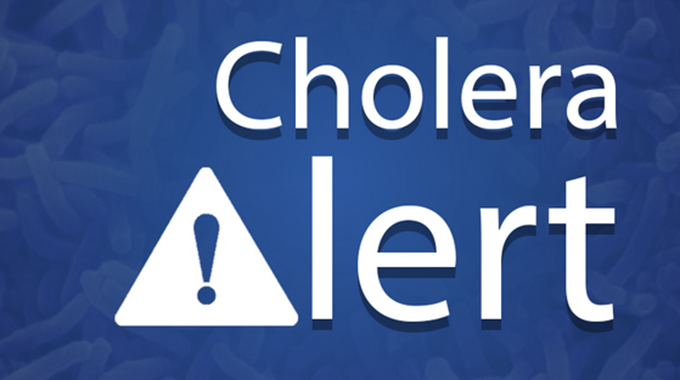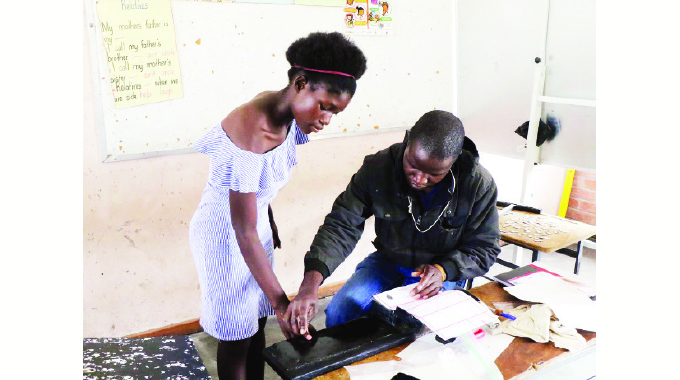Sustainable solutions needed to end cholera outbreaks

Rumbidzayi Zinyuke-Health Buzz
ABOUT three months ago, Zimbabwe recorded its first cholera case since the 2018 outbreak.
Since then, a cumulative total of 598 suspected cholera cases have been reported with 127 of those confirmed.
At least 14 people are suspected to have died from the disease and four of the deaths have so far been confirmed to have been from cholera.
Many still maintain that Zimbabwe’s outbreak is still more manageable than what is happening in other countries, but the scenario presenting in Harare could provide a different dynamic.
As at May 1, the capital city had reported 21 suspected and three confirmed cases.
Last week, City of Harare epidemiologist, Dr Michael Vere, told journalists that 11 suspected cases that had been recorded then and the confirmed three, had all emanated from one area in Budiriro 1 where residents got water from an unprotected water source.
“We are investigating local sources of this infection and so far, what has been done is that we have taken water samples from the water sources of these 11 cases and there is a common source which is a well at one of the households of these cases,” he said.
“This is a well that we are suspecting and we have also closed the well and we have collected samples from surrounding boreholes and some well close to that area and we are awaiting results,” said Dr Vere.
This and Harare’s water situation could spell disaster if not urgently looked at.
Most households in the city have now resorted to getting water from boreholes and wells owing to the erratic supply of municipal water.
But Harare’s underground water sources have been known to be contaminated, hence could spell more problems in the present outbreak and in the future.
It, therefore, remains important to continuously relay the importance of being vigilant where cholera is concerned.
Cholera is an acute diarrheal infection characterised, in its severe form, by extreme watery diarrhoea and potentially fatal dehydration.
It is caused by the ingestion of food or water contaminated with the bacterium Vibrio cholerae.
Cholera is an easily treatable disease. The majority of people can be treated successfully through prompt administration of oral rehydration solution (ORS).
Severely dehydrated patients are at risk of shock and require the rapid administration of intravenous fluids.
These patients are also given appropriate antibiotics to diminish the duration of diarrhoea, reduce the volume of rehydration fluids needed, and shorten the amount and duration of V. cholerae excretion in their stool.
According to experts, the main drivers and challenges for controlling and containing the current cholera outbreaks include non-availability of clean water which has been exacerbated by floods and droughts experienced in many African countries, Zimbabwe included.
These can then experience cholera due to poor access to water and expansion of informal urban settlements,among other humanitarian situations.
Other challenges could include delayed surveillance by countries and this calls for the strengthening of systems to be able to collect and record the correct data.
Following the 2018 cholera outbreak in Zimbabwe, the Government launched the oral cholera vaccination programme that targeted affected communities and those that are vulnerable across the country.
The same is currently being rolled out to combat the new outbreak.
The vaccine is a necessary tool in the fight against cholera, but global shortages could derail roll-out in many African countries who are forced to give one dose of the vaccine instead of two at times.
To beat the outbreak, WHO recommends improving access to proper and timely case management of cholera cases, improving access to safe drinking water and sanitation infrastructure, as well as improving infection prevention and control in healthcare facilities.
These measures along with the promotion of preventive hygiene practices and food safety in affected communities are the most effective means of controlling cholera.
However, prevention remains better than cure.
For prevention of cholera, it is important to drink and use safe water.
But in the face of another cholera outbreak, we realise that not every citizen is accessing clean water as provided for in Section 77 of the Constitution.
Local authorities have struggled to adequately put in place systems that ensure citizens receive clean water.
The dumping of uncollected rubbish around the cities, especially in Harare also poses a threat to the health of the public.
The sewer infrastructure is also old and results in underground seepage which affects underground water, making some boreholes unsafe.
A study done in 2016 showed that an estimated 80 percent of Harare’s borehole and well water was and people using it were more at risk of contracting typhoid and cholera.
Without proper sanitation and clean water, the country could continuously be affected by these outbreaks, hence there is a need to look beyond it and come up with sustainable solutions.
While drilling of boreholes is a good alternative, the same have proved to be a fertile ground for bacteria.
So what should be done?
The Médecins Sans Frontières (Doctors Without Borders) has developed a method of protecting boreholes from contamination using the sanitary seal technique.
This is where a seal is placed between the outermost casing string and the wall of the borehole to prevent entrance to the aquifer by any potential contaminants from the surface.
Already, such boreholes have been constructed in Mbare, Glenview and Hopley where communities were at higher risk of cholera outbreaks.
While the use of the technique could be expensive, it could be the answer to the problem of access to water and sanitation across the county.
Government and local authorities could look into adopting the initiative and rolling it out across the country.
In the meantime, local authorities should ensure residents have access to potable water, develop and implement a system to ensure the delivery of affordable and safe piped water to low-income families, upgrade the water infrastructure, provide regular, up-to-date information to residents on the water quality of both taps and boreholes in their areas so they understand the health risks and benefits of available water sources.
They should also ensure that all public boreholes are regularly tested for water quality and that these results are disseminated to residents.
In the long run, the uptake of the sanitary seal could go a long way in providing clean and safe water.
Providing clean water will protect communities for generations to come.
Feedback: [email protected]









Comments